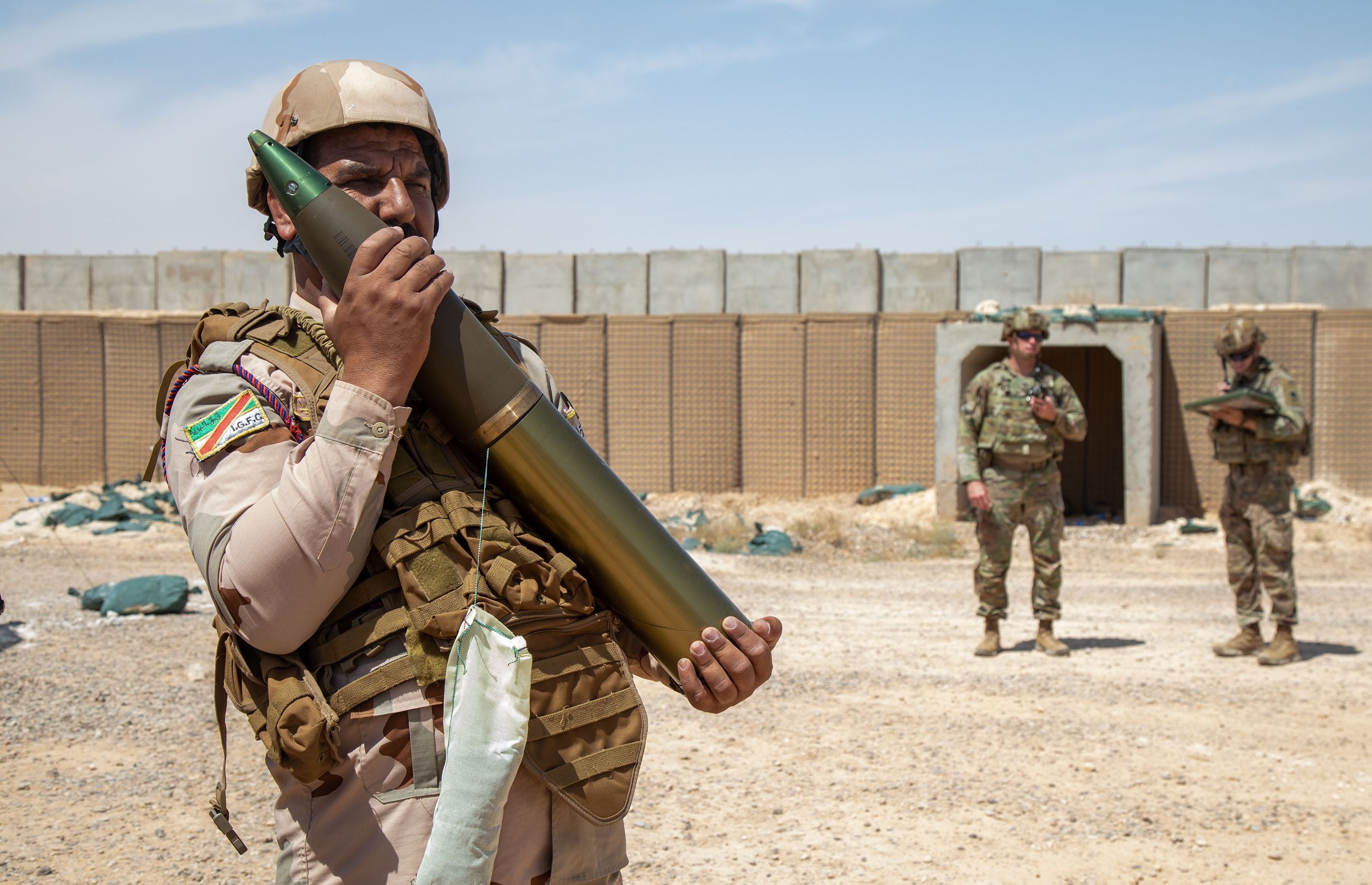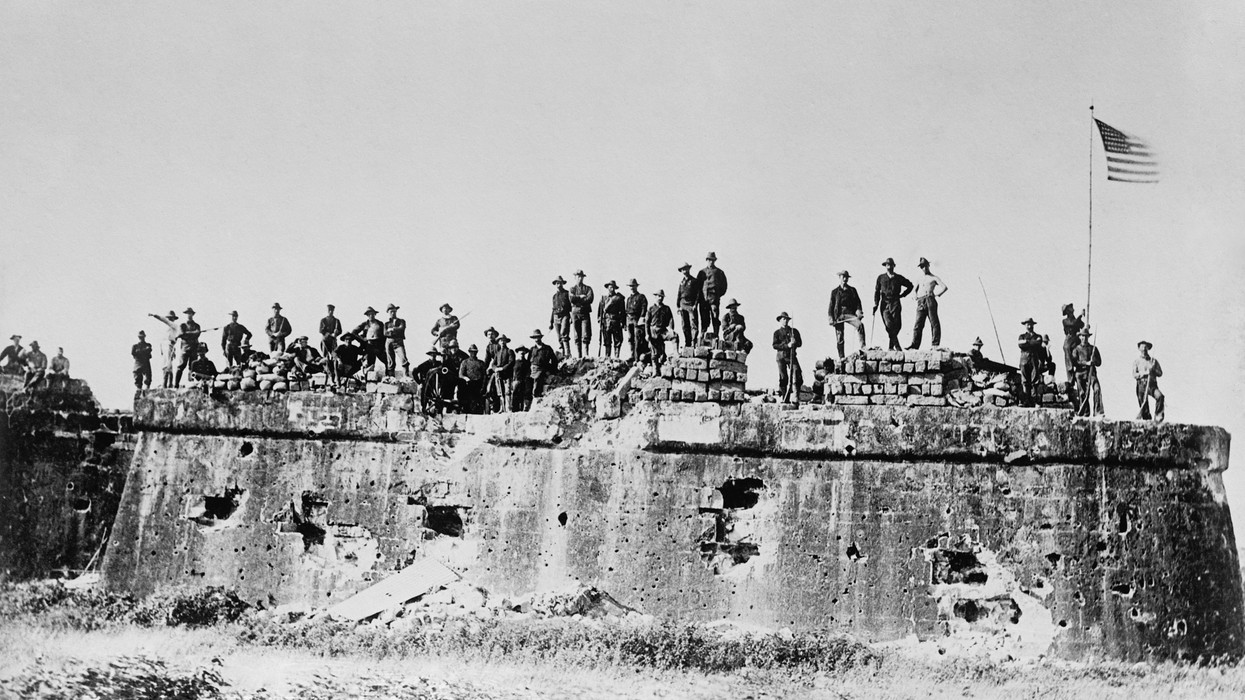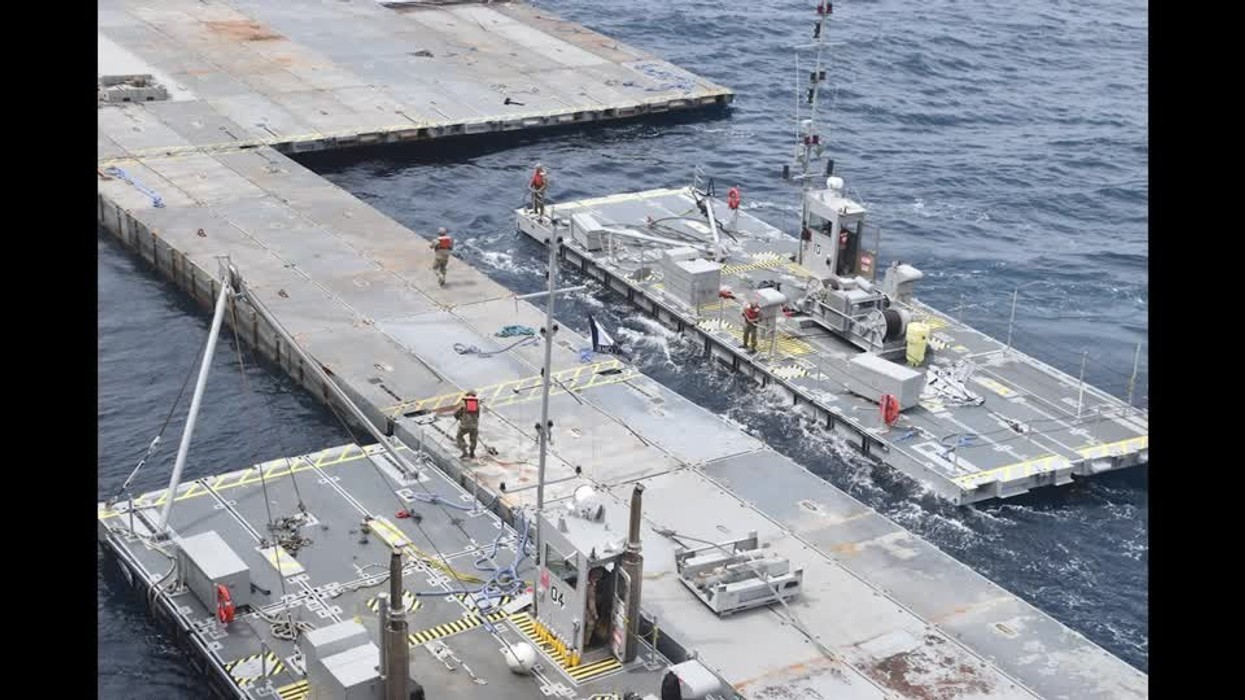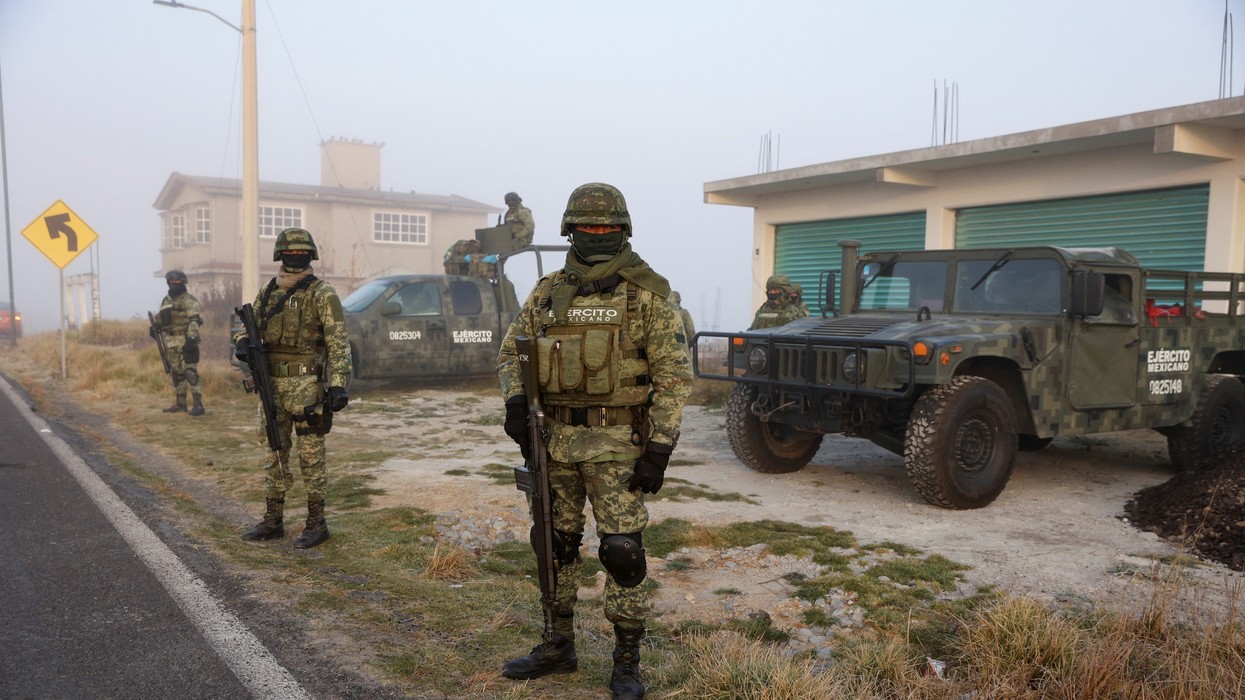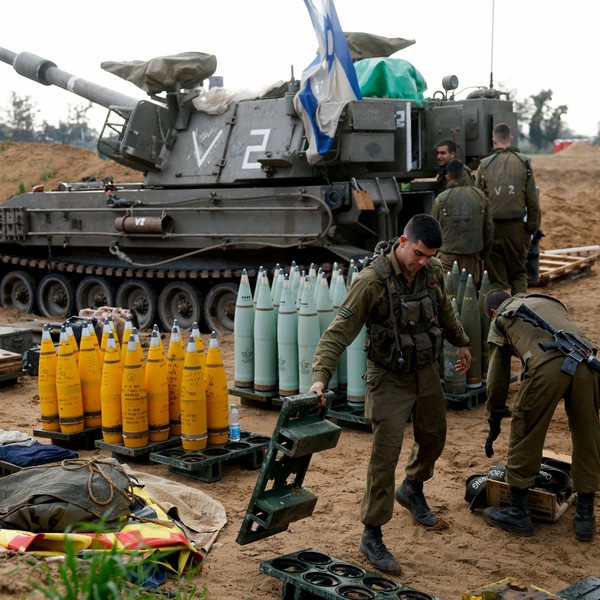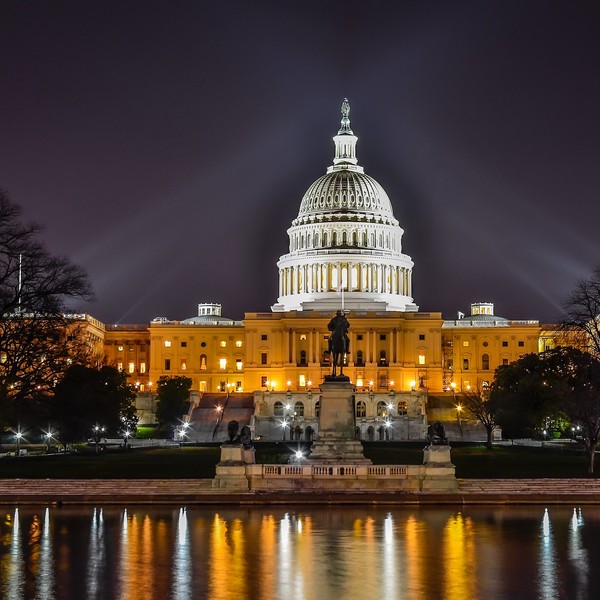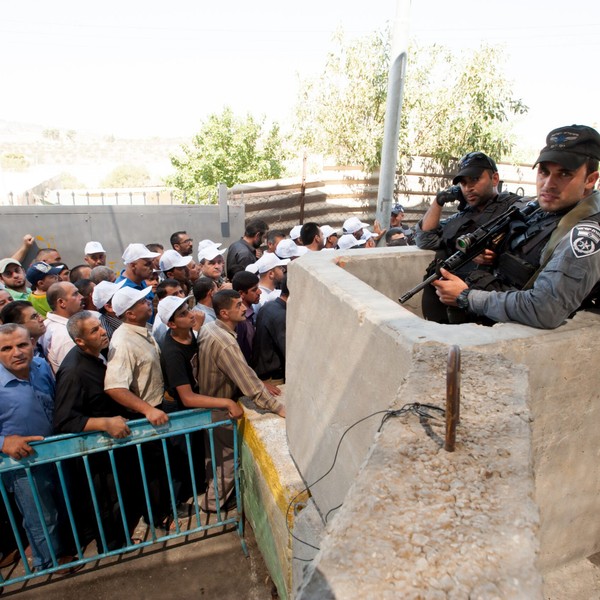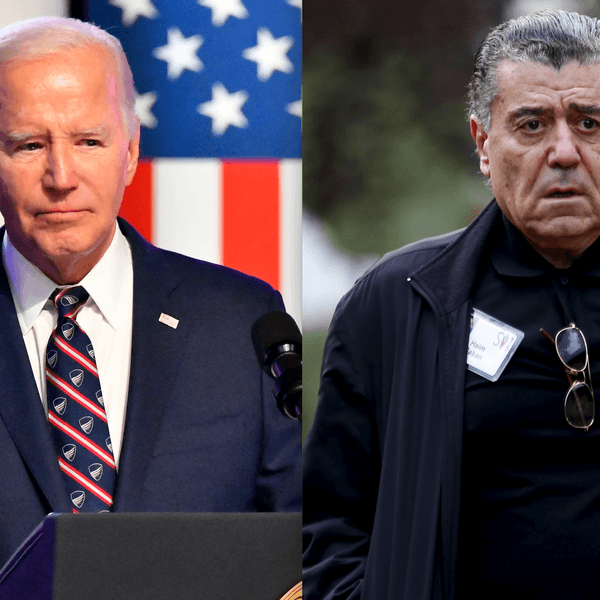The withdrawal of U.S. troops from Iraq in December 2011, once seen as a triumph for the Obama administration, became a cautionary tale as the rise of ISIS prompted their return in 2014.
This is one reason why U.S. troops have remained in Iraq, despite the successful dismantling of ISIS by the end of 2018. Since then, the degradation of ISIS has continued, and any benefits of keeping U.S. troops there as a stopgap against its resurgence are now overshadowed by the risks of exposure to the tit-for-tat game of face-saving exchanges of fire, with Iran-aligned militias.
In Iraq, Washington cannot have it all, but with a touch of creativity and realistic expectations, it can still adequately safeguard its interests after U.S. troops leave, likely with reduced cost and better outcomes.
The United States remains the most important enabler of Iraq’s security forces and largest single donor of humanitarian assistance to Iraq. Congress has approved $1.25 billion in Foreign Military Financing (FMF) for Iraq — allocated at $250 million annually — from 2019 through 2023. Since 2014, the U.S. has delivered a total of $3.5 billion in humanitarian aid to Iraq. This aid extends well beyond self-serving interests to tangibly improve the lives of Iraqis, including rehabilitating nine water treatment plants in Basra, a stronghold of Iran-aligned militias, providing clean water to 640,000 people, and offering cash assistance to those displaced in Erbil due to the war with ISIS. The U.S. has invested tens of millions of dollars in other projects, too, from the maintenance of the Mosul Dam to the preservation of historic and cultural sites, to financing higher education.
In many other countries, such investments would earn Washington’s leaders great respect. Not so in Iraq, where Secretary of State Antony Blinken wore body armor during his visit to Baghdad last November. But this measure is aimed at protecting against a specific segment of Iraqi society, namely certain Iran-aligned militias and largely stems from the Trump administration’s choice to assassinate Qods Force commander Qassem Soleimani, who was accompanied by Abu Mahdi al-Muhandis, deputy head of the Popular Mobilization Forces (PMF), outside Baghdad’s airport in 2020.
Other underlying issues that haunt the relationship include lingering resentment from the early years of the U.S. occupation (of which the younger generation has no recollection), real and perceived violations of Iraqi sovereignty by U.S. strikes, opportunistic blame-shifting by Iraqi politicians, and a significant gap between the expectations of ordinary Iraqis for U.S. commitment to their country and the actual level of U.S. investment. This dynamic has created, at times, an antagonistic attitude towards the United States, notwithstanding substantial aid.
The dynamic is further complicated by the ongoing presence of U.S. troops in Iraq. While some Iraqis genuinely desire the withdrawal of U.S. troops, the arrangement serves the Iraqi government and certain quasi-integrated Iran-aligned militias quite well. The U.S. troop presence helps contain ISIS, ensures ongoing U.S. aid to Iraq, and provides Iran-aligned militias with a new self-serving adversary in place of ISIS, while they enrich themselves with corrupt business schemes.
Another reason Iraq is willing to accommodate U.S. troops is the influence exerted by the U.S. Federal Reserve over its economy given Iraq’s lack of a functional banking system. There is also a widespread concern that if Iraq were to expel U.S. troops, the U.S. might cease permitting dollar transactions, thereby isolating its economy. Although the Iraqi government will periodically express concerns over U.S. strikes violating Iraqi sovereignty, it stops short of expelling U.S. troops. However, with each attack on U.S. troops by Iran-aligned militias and the subsequent retaliatory strikes, the U.S. military mission in Iraq encounters challenges shaped by Iraqi and U.S. domestic politics, along with the potential for U.S. casualties.
The more pertinent question for U.S. policymakers is how this arrangement serves U.S. interests?
Washington lacks the troop numbers, capacity, political will, or plain foolishness to try to defeat the Iran-aligned militias, and retaliatory strikes only deter them temporarily. Washington is poorly placed to fully understand let alone influence Iraq’s intricate politics and elite bargains. Thus, it’s time to envision ways to protect U.S. interests in Iraq without a prolonged deployment of troops.
Acknowledging some hard truths is the initial step. Iraq will always be a more vital interest to Iran than it is to the United States. Most Shi’a stakeholders, spanning the Iraqi political spectrum, would prefer to be independent of pressures exerted by either the U.S. or Iran; they think of themselves, after all, as Iraqis. If forced to choose, they would hitch their wagons to Iran rather than the United States — Iraq will always be on Iran’s border and, for the foreseeable future, will depend on Iran to meet Iraq’s energy needs.
The presence of Iran-aligned militias in Iraq is a lasting reality. The primary U.S. objective in Iraq should be a politically stable Iraq, averting significant sectarian violence and territorial losses to groups like ISIS. As David Schenker, senior fellow at the Washington Institute for Near East Policy, recently argued, the latter can be achieved by leaving a modest U.S. presence in the Iraqi Kurdish region to aid counterterrorism efforts. What proponents and critics of withdrawal often get wrong is that they view Iraq as an adversary. It doesn’t have to be if relations are normalized.
Polls indicate that economic development and corruption are more significant concerns for the average Iraqi today than security. A considerable number of Iraqis desire a more assertive U.S. stance against corruption, increased engagement in development initiatives, and a more candid critique of their political system’s shortcomings. Washington should leverage its strengths, such as establishing robust anti-money laundering frameworks, implementing technical projects, maintaining infrastructure, and promoting human development.
These tangible forms of aid prove more impactful than other efforts dedicated to nurturing media and civil society, domains better suited for homegrown development. U.S. troops grant insights into the political and security developments of the country, but Washington should still be able to focus on areas where U.S. assistance is genuinely desired and needed after their withdrawal and potentially with less risk.
U.S. Ambassador Alina Romanowski is venturing into Iraqi society as much as possible, considering the restrictions she faces. In March of last year, she visited Mosul for the first time — a city liberated in part by overwhelming U.S. airpower and largely undergoing reconstruction with help from the U.S. after the ISIS conflict — a trip long made impossible due to security restrictions. She has engaged with various political leaders, including former Prime Minister Haider al-Abadi and Shi’a theologian Ammar Al-Hakim.
However, her freedom of travel is limited compared to European counterparts, and she faces obstacles in meeting certain political and military figures for various reasons, not the least of which is that some are Specially Designated Nationals under U.S. sanctions. Removing U.S. troops could make it more politically tenable for U.S. diplomats to engage with Iraq as it is.
The low U.S. troop presence is invisible to most Iraqis. This doesn’t mean it can’t be used as a political football in intramural Iraqi games. But it is no accident that in the wake of each groundswell for ending the U.S troop presence, no action is ever taken. The Iraqis, who recognize the fragility of their state building enterprise, are not eager to experiment with a landscape devoid of U.S. troops. Many Iraqis outside of the Iran-aligned militias also see the U.S. military presence as a counterweight to Iranian influence. Some also fear that if U.S. troops leave, the benefits they receive through U.S. management of their monetary system will also go away.
It is not the U.S. military presence per se that is the problem from a restraint perspective. It is rather the fortress mentality of the official U.S. civilian presence. This imposes a heavy cost on the sustainability of diplomacy worldwide.
The U.S. Embassy operations in Baghdad cost about $1 billion per year. If this were a Defense Department responsibility, this figure would merit a shoulder shrug. But in comparison, the State Department's budget is miniscule — a vivid illustration of U.S. priorities — and its outlays in Iraq crowd out diplomatic initiatives elsewhere. The U.S. can withdraw militarily from Iraq, while continuing to facilitate temporary training missions. Most importantly, the U.S. should engage more broadly with Iraqi society and leave behind the fortress mentality that has hobbled U.S. diplomacy in Iraq.
